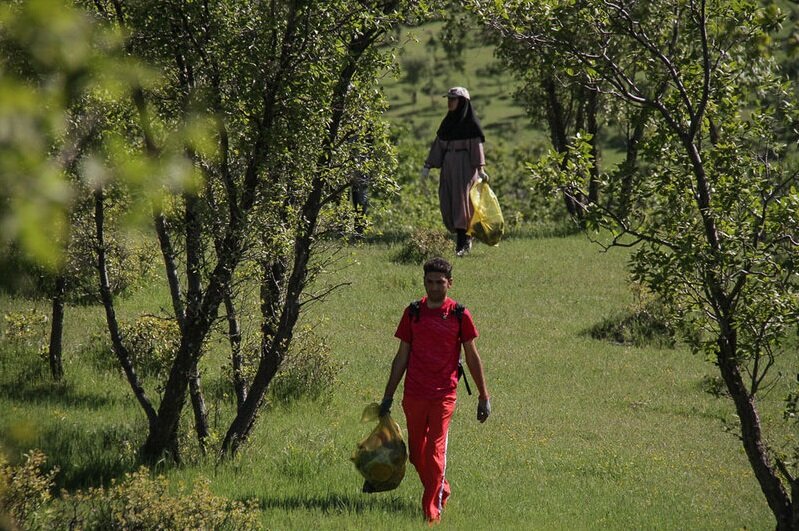Time to reconnect with Iran’s travel gems

Welcome to the realm of responsible tourism in Iran, where holidaymakers are not mere spectators but active participants.
Here, like many other countries, beneath the surface lies an escalating movement in travel that adds respect and preservation to leisure.
Experts say that nowadays a growing number of visitors are not only captivated by the ornate mosques of Isfahan or the ancient ruins of Persepolis but are also committed to leaving a positive impact on local communities and the environments they encounter.
Roza Najaf, a seasoned tour guide in Tehran, shares her insights on this evolving trend. “Travelers are progressively conscious of their impact. “A significant number of them want to engage with locals, respect traditions, and minimize their carbon footprint,” she explains.
Another pillar of responsible tourism is to forge meaningful connections with local communities. In that line, for instance, homestays in local houses, where travelers are welcomed with open arms, have long become a popular choice in many Iranian villages and towns. Such stays not only offer an insight into daily life and indigenous traditions but also contribute directly to the livelihood of local families.
“We take pride in sharing our culture and heritage with visitors,” says Reza, a host in the ancient village of Niasar in Kashan. “With homestays here, travelers get a taste of our cuisine. They witness our traditions and support our economy. It is a win-win for both.”
Moreover, responsible tourism greatly touches upon preserving the natural wonders of the country, which range from sea coasts to barren desserts and from jugged mountains to paddy fields, to name a few.
Experts say more conservation initiatives ranging from promoting eco-friendly accommodations to organizing clean-up campaigns in historical and natural sites as well as remote areas should be launched to protect delicate ecosystems and reduce the environmental impact of mass tourism.
“Lush forests are our treasures... We must ensure they remain pristine for generations to come,” emphasizes Mahmoud, who is an advocate for sustainable tourism.
“Education is key,” remarks Mahna Nikbin, a member of the board of the Iranian Scientific Association for Ecotourism.
“Practical actions undertaken by stakeholders should include creating educational programs for tourists and local businesses, supporting responsible tourism enterprises, products and services…”
Nikbin said travelers, by choosing responsible tourism destinations, can significantly support this cause and reduce the environmental impact of tourism. “Moreover, they can show respect for local cultures and traditions and aid in bolstering the local economy by supporting local businesses.”
“Failure to adhere to responsible tourism practices can have significant negative consequences on the environment and local societies. This includes air and water pollution, habitat destruction, endangerment of species, increased living costs, overcrowding, and loss of culture and traditions, all of which can exacerbate due to irresponsible tourism practices,” she explained.
As the world redefines its approach to travel, Iran’s embrace of responsible tourism stands as a beacon of hope. Here, responsible tourists are keenly aware of the significance of sites, each narrating a saga of the ancient country, and are committed to helping preserve their integrity.
AFM
Leave a Comment